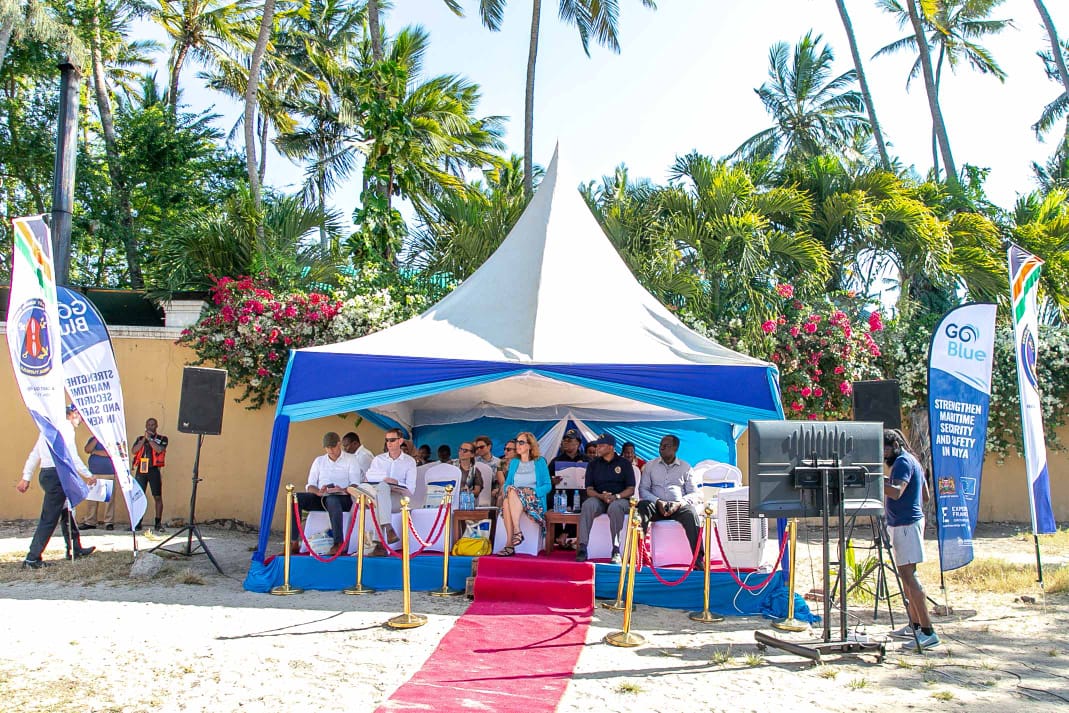
Expertise France, in partnership with the UN Office on Drugs and Crime (UNODC), and with financial support from the European Union is launching today the maritime security component of the Go Blue programme.
Over a four-year period, the € 5 million initiative will be implemented across all six counties in the coast region of Kenya, contributing to the development of the blue economy in the country by helping to address maritime safety and security challenges.
“Kenya's waters provide significant economic opportunities, such as fishing, aquaculture, coastal and marine tourism, as well as research activities,” says Irene Giribaldi, Head of Cooperation at the EU Delegation to Kenya. “However, these prospects are undermined by a wide range of maritime security challenges including
marine pollution and illegal, unregulated and unreported fishing. While focusing on the Blue Economy growth, Kenya is seeking to ensure optimal use of its resources to prevent over-exploitation of maritime resources with a view to ensure new wealth creation opportunities and possibilities for the coastal communities,” she adds on.
International trade is very critical to many African economies, with over 90% of Africa’s imports and exports conducted by sea. In 2017, Kenya’s six coastal counties contributed an estimated Ksh 0.7 trillion (7 billion USD) - equivalent to 9% of the national GDP – the fisheries and aquaculture sector in Kenya providing direct
employment opportunities to over 500,000 people and supporting over two million people indirectly. In 2005, when maritime piracy in the western Indian Ocean was at its height, the Kenyan shipping industry lost between USD 300 million and USD 400 million per annum.
“Fighting against illicit activities at sea requires a multi-stakeholder approach,” says Rima Le Coguic, Deputy CEO in charge of Operations at Expertise France. “All Kenyan maritime security actors, such as the legislative, judiciary, governmental, private sector, civil society and local communities are now cooperating and collaborating to respond to maritime safety and security challenges,” she continues.
The main aim of the Go Blue maritime security project is to strengthen the capacity of the Kenya Coast Guard Service and other national and regional agencies involved in maritime security, by promoting a culture of information exchange, cooperation and collaboration. In addition, other activities will be set up such as a community on the water watch programme, including fishermen safety courses and the development of a mobile phone application to enhance safety and security at sea, as well as support and improve the search and rescue (SAR) chain across the coastal counties.
“A safe and secure Kenyan maritime territory is key for the further development and expansion of our thriving blue economy,” says Brig (rtd) Loonena Naisho, Director General of the Kenya Coast Guard Service. “As Kenya Coast Guard Service, we are happy to be part of this project and we look forward to learn from the experiences and expertise our partners bring along,” he concludes.